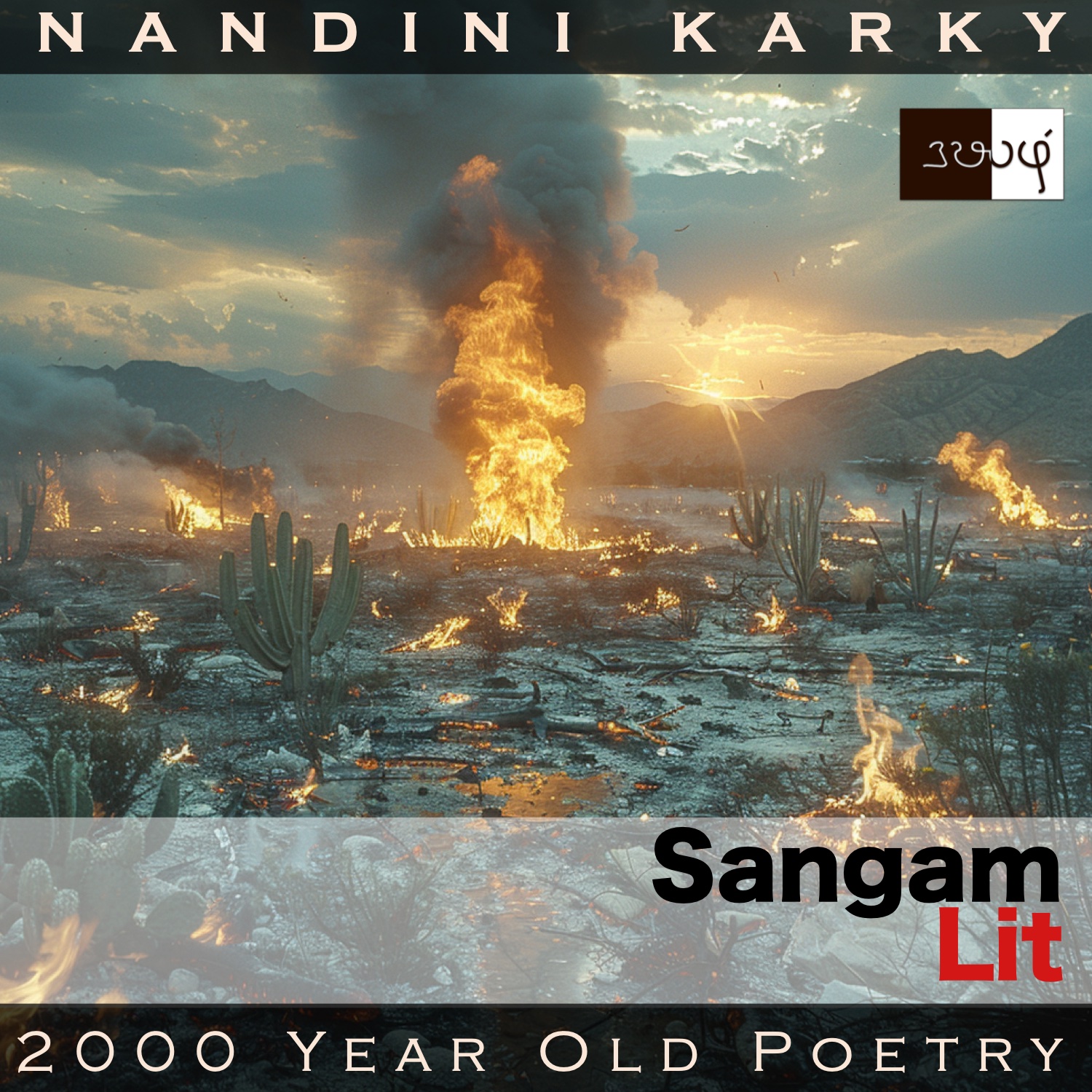Podcast: Play in new window | Download
Subscribe: Apple Podcasts | Spotify | Amazon Music | Android | iHeartRadio | TuneIn | RSS | More
In this episode, we encounter a philosophical truth, as portrayed in Sangam Literary work, Puranaanooru 356, penned by the poet Kathaiyankannanaar. The verse is situated in the category of ‘Kaanji Thinai’ or ‘Defence’ and vividly describes an ancient cremation site.

களரி பரந்து, கள்ளி போகி,
பகலும் கூஉம் கூகையொடு, பேழ்வாய்,
ஈம விளக்கின், பேஎய் மகளிரொடு
அஞ்சு வந்தன்று, இம் மஞ்சு படு முதுகாடு;
நெஞ்சு அமர் காதலர் அழுத கண்ணீர்
என்பு படு சுடலை வெண் நீறு அவிப்ப,
எல்லார் புறனும் தான் கண்டு, உலகத்து
மன்பதைக்கு எல்லாம் தானாய்,
தன் புறம் காண்போர்க் காண்பு அறியாதே.
Now, we have finally left the series of songs on war for the sake of a maiden and entered a new domain. The poet’s words can be translated as follows:
“The arid land spreads wide, and is densely packed with cactus; Even in the day, owls hoot; Ghostly maiden with huge mouths roam in the light of the pyre. Tears shed for lovers, who live on in the heart, dampens the ashes of bones burning upon the ground. Seeing the backs of everyone and being the end of those who are born upon this world, it knows not anyone, who has seen its back receding away!”
Time to delve into the nuances. The poet starts by talking about a salty, arid land, which is filled with cactus. There is so much darkness here that owls seem to forget the time and start their hooting even during the day. Next, the poet talks about the light from burning pyres and the appearance of ghost maiden here. Such is that fearsome, smoke-filled cremation ground, the poet explains. That mention of smoke made me think it’s the negative feelings in the minds of the bereaved that makes them imagine ghosts in that confusing atmosphere. The poet too talks about how the tears of these bereaved, who weep for those they loved, flow and moisten the white ash of bones burnt in the ground. The poet concludes with the words that this is the destiny of that one, which sees the backs of everyone in the world, and never shows its back to anyone at all.
Through these cryptic words, the poet paints a portrait of death. The phrase about seeing the backs of everyone implies that death, without exception, manages to nab anyone and everyone trying to run away from it, and that it always emerges the winner in the battlefield of life. While this is the case, it is never known to run away, showing its back from anyone, anywhere, the poet adds. And thus, with this verse, we enter a sombre territory of death and its permanence in life.




Share your thoughts...